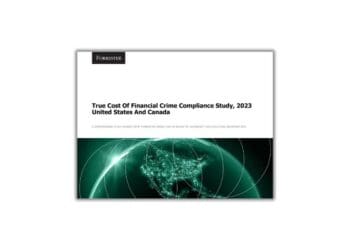As sanctioned entities continue to innovate new ways of avoiding the reach of law enforcement, compliance teams are forced to heighten their diligent transaction monitoring to keep up with changes to beneficial ownership. Oliver Bodmer of SIX explores the recent (and not-so-recent) history of sanctions and what’s probably keeping chief compliance officers up at night.
Editor’s note: Oliver Bodmer, author of this article, is product management director at SIX, a financial market infrastructure operator.
The first introduction of sanctions can reportedly be traced back to antiquity. Perhaps the first instance of multilateral deployment on a notable scale came in 1806 with Napoleon enforcing a blockade restricting states from continental Europe trading with Great Britain. Since then, use of this economic weapon has generally been tied to conflict. But post-World War II, the creation and issuing of sanctions has become more sophisticated with government arms dedicated to formulating sanctions regimes that target financial systems of entire countries or isolate individuals or groups.
Russian sanctions surge
In the past 10 years, the volume of sanctions has increased for a number of countries engaged in standoff with the U.S. and its allies. However, the escalation of the conflict in Ukraine has resulted in a drastic shift in the sanctions landscape. Prior to 2022, Iran was the target of the greatest number of sanctions by Western nations, and the latest fine of Nasdaq for Iran sanctions breaches shows how they are still impacting firms today. But after it invaded Ukraine in 2022, Russia became the sanctions leader. And amid new tensions in the Middle East, sanctions could reach new highs.
As a result, financial market participants and their compliance officers have been under the gun to ensure their institutions’ KYC processes can handle this surge in volume. This is far from easy because, according to SIX research, the total number of sanctioned securities has increased by 306% since January 2022. And in addition to the larger number, compliance teams have had to contend with staggered application dates for sanctions by the different regulators.
However, since the initial surge in the number of sanctions issued by the U.S. Treasury’s Office of Foreign Asset Control (OFAC) and its allies in February 2022, the volume of new sanctions issued has plateaued. While this might appear to be a cause for relief for AML and KYC professionals in compliance departments at financial institutions, the truth is that the sanctions landscape is constantly evolving beyond the headline news.
Your Company Could Be Subject to Chinese Investment Ban — and You May Not Know
The Biden Administration’s pending crackdown on U.S. investment in certain Chinese technologies, part of an increasingly aggressive posture against foreign actors like China and Russia, may be wider in scope than many corporate leaders currently understand.
Read moreChanging tactics
Huge amounts of resources are dedicated to finding new ways to avoid the spotlight of sanctioning bodies, with new techniques emerging constantly. Take, for instance, the challenge of beneficial ownership. The Panama Papers leak highlighted the intricate and unclear ownership arrangements used by multinational corporations, with the lack of transparency regarding beneficial ownership serving as a significant loophole and facilitating the illicit movement of funds through offshore accounts.
One of the hardest requirements for compliance is to know how the investments in your portfolio touch sanctioned entities. By owning assets through a complex web of legal structures, subsidiaries and shell companies, sanctioned entities can taint securities that on the surface appear to be clean.
There are many data providers accounting for beneficial ownership in accordance with OFAC’s 50% rule, which imposes sanctions on companies with combined ownership by sanctioned “blocked” parties of 50%. But while the capabilities for spotting sanctions breaches have increased at the same time as the volume of new sanctions has leveled off, there is cause for concern when you look closer at who has beneficial ownership.
In particular, there has been an increase in “blocked” entities using corporate bond issues as a means to gain access to financial markets in contravention of global sanctions. There are companies operating in the UK or Europe that are subsidiaries of sanctioned entities, raising money via debt instruments. Using this tactic to circumvent rules, money is then funneled back to the sanctioned entities, as the “blocked” entity back home acts as ultimate borrower.
In our research, we have seen that sanctioned International Securities Identification Numbers (ISIN) are appearing frequently in prospectus documents for debt issues. In these instances, the subsidiaries of sanctioned entities that meet OFAC’s 50% rule are using the debt issuance loophole to funnel money back to their parent company. As a result, unsuspecting financial institutions can find themselves stung by a tainted company or asset despite putting in place some mechanisms by which to follow the latest sanctions stipulations. Curiously, these debt issues count notable investment banks and market infrastructures as book runners and clearers, highlighting the risks to firms that may be unaware of their hidden exposure to sanctions.
Ultimately, as the old saying goes, rules are made to be broken, and when it comes to sanctions, there will always be significant effort on the part of those targeted to innovate new means through which they can breach them. However, market participants that get caught out by increasingly sophisticated efforts to circumvent sanctions will find they do need to follow the rules or feel the impact of regulatory fines.




 Oliver Bodmer is director of product management at SIX, based in Switzerland. He leads SIX’s proposition and product development in the areas of KYC, AML and sanctions. In recent years, he has directed numerous client implementation projects in these areas. Prior to his engagement at SIX, Oliver worked in the headquarters of a major banking group and spent time with large international technology corporations, where he used his experience from an assignment at the Swiss antitrust department.
Oliver Bodmer is director of product management at SIX, based in Switzerland. He leads SIX’s proposition and product development in the areas of KYC, AML and sanctions. In recent years, he has directed numerous client implementation projects in these areas. Prior to his engagement at SIX, Oliver worked in the headquarters of a major banking group and spent time with large international technology corporations, where he used his experience from an assignment at the Swiss antitrust department.







